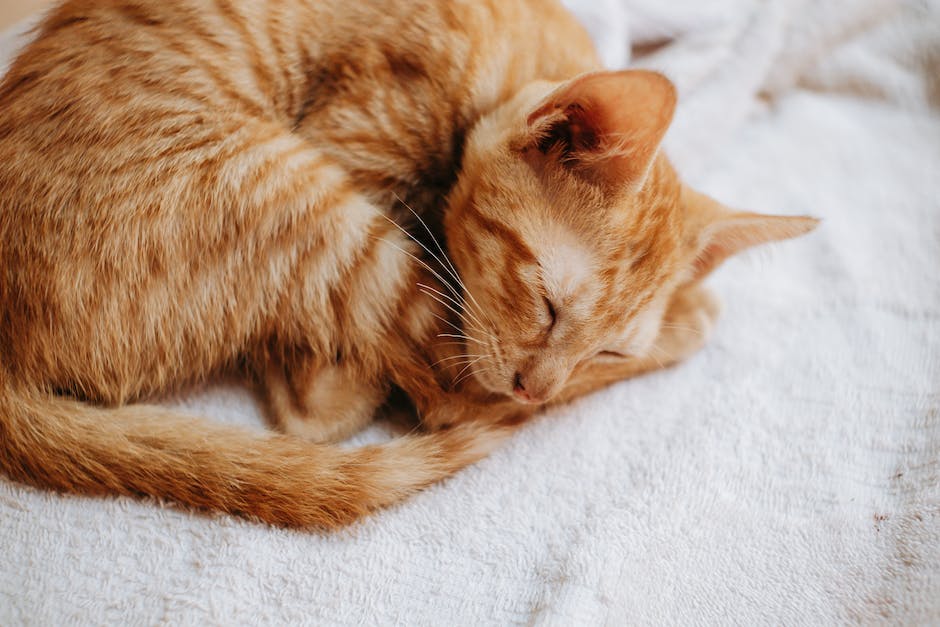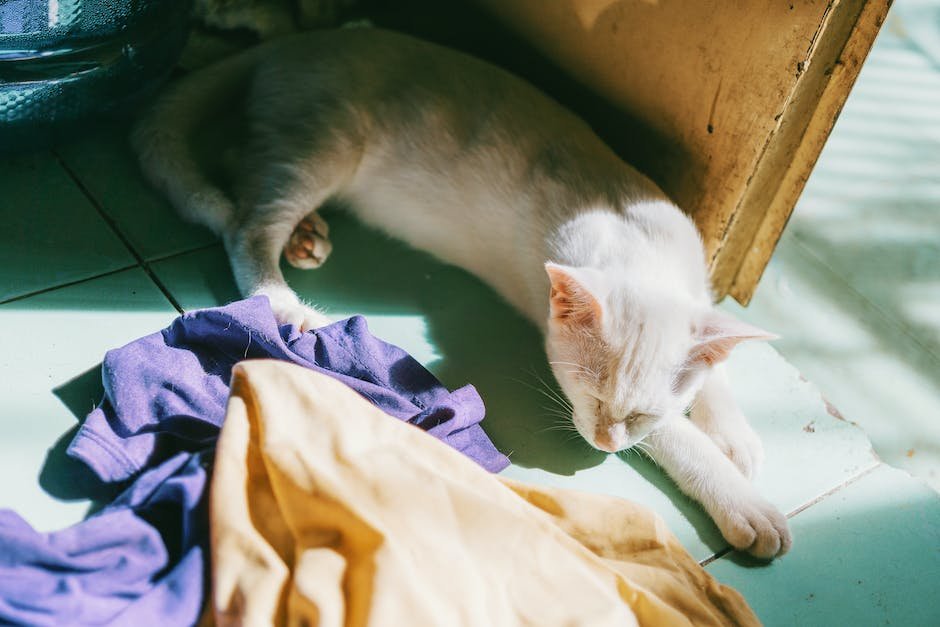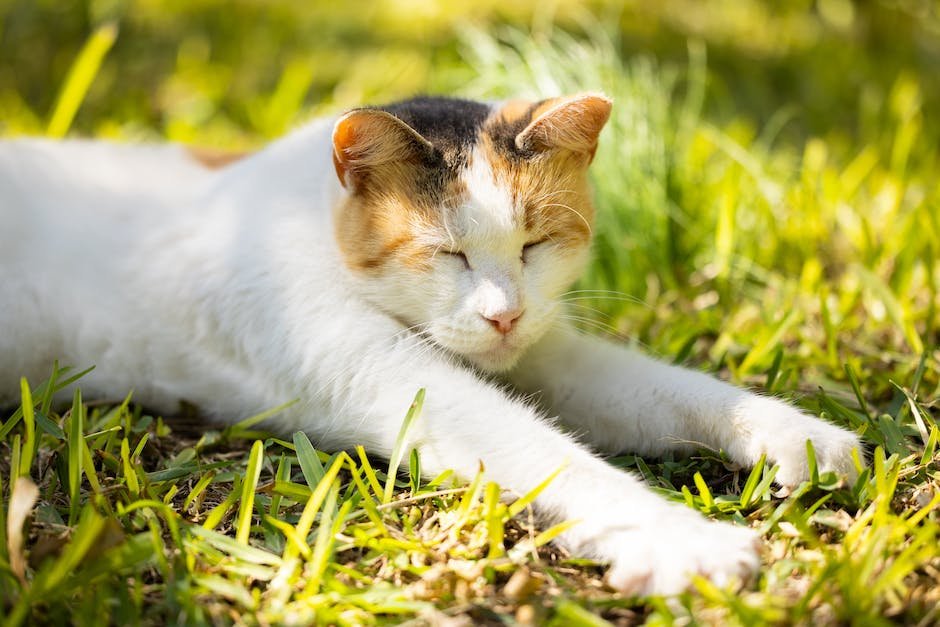In fact, there are several reasons your cat may be making noises while sleeping. Luckily, most of these sounds can be resolved with simple changes or fixes! If you’re still having trouble figuring out what is causing his groans, try changing some things about the way he sleeps to see if that helps.
It may also help to discuss this behavior with your vet so they can determine whether something else could be interfering with sleep cycles. For example, does your dog snore? Does your roommate’s dog bark at night? Both of those could be culprits in your friend’s issues with her cat.
Are they eating too much?

Dogs are physically grow as they eat more food, but some owners may not update their dog’s diet due to financial constraints. Some health conditions can also affect how well your dog eats, so make sure you check with your vet if you notice changes in his or her appetite.
If your dog is drooling frequently and looking like he or she might be hungry, try offering him or her a few snacks to see if that makes a difference. Also, ask your veterinarian whether there are any foods or supplements that help calm down stomach acid, which could possibly cause sleep problems for your pooch.
Is it a medical issue?
If your cat is making persistent groans or moaning noises while sleeping, this may be an indication that something more serious like sleep apnea, respiratory disease, or other health conditions are present.
If you notice any changes in how your pet sleeps or if they seem to be struggling to get adequate rest, have them seen by a vet right away!
Something as simple as nasal discharge, coughing, or heavier than usual breathing can indicate a much bigger problem. While some of these issues are not completely reversible, appropriate care and treatment will help your animal feel better and live longer.
Some things that can cause cats to make loud sounds while asleep include:
Nasal problems such as colds or allergies
Thyroid disorders
Sleep deprivation due to stress, night shifts, or other reasons
Certain digestive diseases (loss of appetite)
Urinary tract infections
Infections such as gingivitis (gum inflammation) or periodontal disease (lack of proper tooth cleaning)
Osteoarthritis (painful joints)
Kidney or bladder neoplasms (cancers)
Psychological factors such as depression
Allergies or reactions to vaccines
Your veterinarian will do a complete physical exam to determine what is causing the symptoms and whether there are further tests needed.
Do they need to rest?
 As humans we take our sleep for granted, but it is an essential part of your health. Sleep helps your body restore itself between bouts with active living.
As humans we take our sleep for granted, but it is an essential part of your health. Sleep helps your body restore itself between bouts with active living.
When you don’t get enough sleep, your overall wellness can be compromised. You may experience daytime fatigue, mental fog, weight gain, and even symptoms of stress or disease.
Too little sleep also raises your blood pressure and glucose levels, both of which contribute to heart disease. In fact, people who are deprived of sleep are at higher risk for developing diabetes than individuals who sleep eight hours per night.
Cat owners often say their kitties wake them up in the morning by making loud moaning sounds. While this is kind of cute, it could possibly be annoying for those sleeping next to them!
If your cat is consistently making these noises when he/she sleeps, then perhaps they need to rest longer or try different positions. Or maybe your feline friend just needs some quality time together.
Does it help them sleep better?
While some people believe that cats who snore are just being noisy, there is actually a reason why they make this sound. It helps their sleeping partner or roommate get closer to falling asleep by acting as your own personal lullaby.
Most dogs will try to put themselves in position to be lapped by their owner while they sleep, but may not necessarily turn off when you lay down next to them. This can cause them to keep waking up because they are looking for an empty bed to lie in, or maybe even start barking due to frustration.
For some dog owners, if their fur does not stick straight up after washing, they will run a brush though their hair before putting them into a crate or bed for sleep. This could potentially strip away all of the protective coating that their skin loses during the wash process, making it easier to catch a wet surface from something like water or urine running onto the floor.
This could also expose dry patches of skin where no such protection has been given yet. Both situations increase risk of infection for your cat or dog.
Do they need to see a vet?
 As mentioned before, your cat will not feel comfortable sleeping with a noise source so make sure that you do not have any night time noises such as the vacuum or dishwasher running.
As mentioned before, your cat will not feel comfortable sleeping with a noise source so make sure that you do not have any night time noises such as the vacuum or dishwasher running.
If your cat is awake and trying to sleep during these times then it could be a serious health issue for them.
They may develop symptoms like weight loss, lethargy, vomiting and/or diarrhea. If this happens quickly it can be life threatening.
Your best bet is to turn off those sounds at night and if your kitty seems more tired than normal then take them to the doctor.
Is it a common noise?
While some say that cats sleep silently, most agree that there are many different sounds your cat makes while sleeping. A few of these include purring or moaning noises, snoring, growling, hissing, spitting, sneezing, coughing, and vomiting.
Some believe that this is because they feel sleepy or content. Others think it’s just to wake themselves up more easily since it’s close to awake time.
But what if this sound isn’t due to being tired and needful of rest but rather something else? What if this sound means something worse?
There are several theories about why cats make this kind of noise during sleep. Some say that it helps them breathe better, others that it helps keep them warm, and some even claim that it aids in digestion. All true to a degree, but none that clearly explain all instances of this noise.
What do we know though? Cats who make this type of noise suffer from health problems very rarely.
What causes it?
 If you listen closely, you can sometimes make out what your cat is dreaming about while she’s sleeping. This happens when body muscles are relaxed and her breathing slows down.
If you listen closely, you can sometimes make out what your cat is dreaming about while she’s sleeping. This happens when body muscles are relaxed and her breathing slows down.
This typically occurs at night, so if you hear this noise happen during the day, then it’s not important!
What makes some cats groan or purr more loudly than others depends mostly on personal preference. Some people say that it has to do with how they feel about certain things, such as friends or family members, but no one really knows why that is.
It could also be due to anything from nutritional issues to health problems like dental disease. All of these factors can affect sleep quality, and thus, the intensity of the sound.
Cat owners may already know whether their feline friend is suffering from any of the above, so try not to worry too much unless you get a new loud noise every now and then.
Does it help them get rid of anxiety?
 There is a theory called ‘reflex relaxation’ that suggests when your body is in a state of hyper-reactivity, stress can cause you to tighten up or tense up physically.
There is a theory called ‘reflex relaxation’ that suggests when your body is in a state of hyper-reactivity, stress can cause you to tighten up or tense up physically.
For example, I have heard that people who are very stressed out may breathe more rapidly and take longer pauses between breaths than individuals who aren’t as stressed.
This could contribute to someone becoming short of breath or experiencing sleep apnea. Breathing slowly and deeply can help relax muscles soothe the mind and body.
On the other hand, some experts believe that sleeping with a light blanket helps calm down anxious or nervous system activity by creating close contact.
A well-known therapist uses a bellows device while she sleeps which works like a large plastic baggie. As she breathes in, the bag inflates and makes a buzzing sound, which helps her feel relaxed.


















